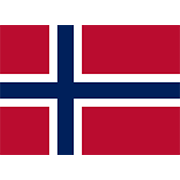Fiscal subject related
The Norwegian Ministry of Finance has opened a public consultation to assess the move toward mandatory digital bookkeeping and e-invoicing for all businesses required to keep accounts in Norway. The proposal, prepared by the Norwegian Tax Directorate, outlines a phased plan to introduce these measures starting January 1, 2028.
Currently, e-invoicing is only mandatory in the public sector (B2G) and has been in place since 2012. For the private sector (B2B), electronic invoicing remains voluntary, although many companies already use it for efficiency and cost-saving reasons.
The government’s goal is to:
- Simplify bookkeeping and tax reporting,
- Prevent tax fraud,
- Align with EU standards,
- Save businesses an estimated 5 billion NOK per year.
Proposed dates:
- From 2028: All businesses required to keep accounts must issue e-invoices,
- From 2030: Digital bookkeeping and the ability to receive e-invoices will be mandatory.
Some exceptions may apply to small sole proprietors and bankrupt estates, while financial institutions and insurance providers will have specific rules.
How e-Invoicing works in Norway?
Norway uses the Peppol BIS 3.0 standard and Peppol eDelivery network for both public and private sectors. Businesses can send e-invoices through their own systems or use authorized providers. The EHF format, based on the same standards, is also accepted for public transactions.
Other digital requirements
- VAT Reporting (MVA-melding): Companies must regularly file electronic VAT reports, typically every 2 months or quarterly,
- SAF-T File: Businesses must keep a structured XML file of their accounting data, ready to submit to tax authorities upon request.
The public consultation on this proposal is open until 31 October 2025. After this date, the authorities will review the feedback received before finalizing their recommendations on the implementation of mandatory digital bookkeeping and e-invoicing.
In summary, Norway is moving toward full digitalization of financial processes. While businesses still have time to prepare, the shift to mandatory e-invoicing and digital bookkeeping is expected to bring major efficiency benefits and align the country with international standards.
Other news from Norway
Norwegian Parliament Sets VAT Rates for 2026
 Norway
Author: Ivana Picajkić
Norway
Author: Ivana Picajkić
The Norwegian Parliament (Storting) has adopted its annual VAT resolution for the 2026 budget year, confirming that the general VAT rate will remain at 25% from 1 January 2026, alongside existing reduced rates. Read more
Subscribe to get access to the latest news, documents, webinars and educations.
Already subscriber? Login


Reminder: Norway Moves Toward Mandatory E-Invoicing and Digital Bookkeeping
 Norway
Author: Ivana Picajkić
Norway
Author: Ivana Picajkić
Norway has launched a consultation on introducing mandatory digital bookkeeping and B2B e-invoicing, led by the Norwegian Ministry of Finance, with the aim of modernising accounting, reducing administrative burdens, and improving transaction traceability. Under the proposal, businesses would be required to send e-invoices from 1 January 2028 and receive e-invoices and maintain digital records from... Read more



Norway: Businesses Must Create Daily Z Reports, Printing Can Follow Later
 Norway
Author: Ivana Picajkić
Norway
Author: Ivana Picajkić
Under the new bookkeeping rules, businesses using cash register systems must prepare a daily cash settlement. Read more
Subscribe to get access to the latest news, documents, webinars and educations.
Already subscriber? Login


New document was uploaded: EV-chargers from the Fiscalization Perspective in Norway
 Norway
Author: Ivana Picajkić
Norway
Author: Ivana Picajkić
The purpose of this document is to explain rules regarding the treatment of EV chargers for electric vehicles in Norway in relation to fiscalization. The document will explain whether they are subjects of fiscalization or not, whether there are some special rules and regulations, or if there are some special rules Read more
Subscribe to get access to the latest news, documents, webinars and educations.
Already subscriber? Login


Norway: Stored Receipts Must Be Closed Before Day-End
 Norway
Author: Ivana Picajkić
Norway
Author: Ivana Picajkić
The Norwegian Tax Administration mandates that businesses finalize all sales before issuing a daily Z report. Read more
Subscribe to get access to the latest news, documents, webinars and educations.
Already subscriber? Login


Reminder: Norway’s Strict Rules on Invoices
 Norway
Author: Ivana Picajkić
Norway
Author: Ivana Picajkić
The Norwegian Tax Administration has reiterated that invoice numbers must not be altered and may only be generated through certified invoicing software or pre-printed forms bearing the seller’s enterprise details. Read more
Subscribe to get access to the latest news, documents, webinars and educations.
Already subscriber? Login


Norway: Bergen seeks permission for Sunday shopping
 Norway
Author: Ivana Picajkić
Norway
Author: Ivana Picajkić
Bergen and Oslo are seeking national approval to allow Sunday shopping, aiming to meet tourist demand while challenging Norway’s tradition of keeping shops closed on Sundays Bergen’s city council has voted to apply for national recognition as a “typical tourist destination.” If approved, this would allow shops in certain parts of the city to open on Sundays. Oslo has made the sa... Read more


